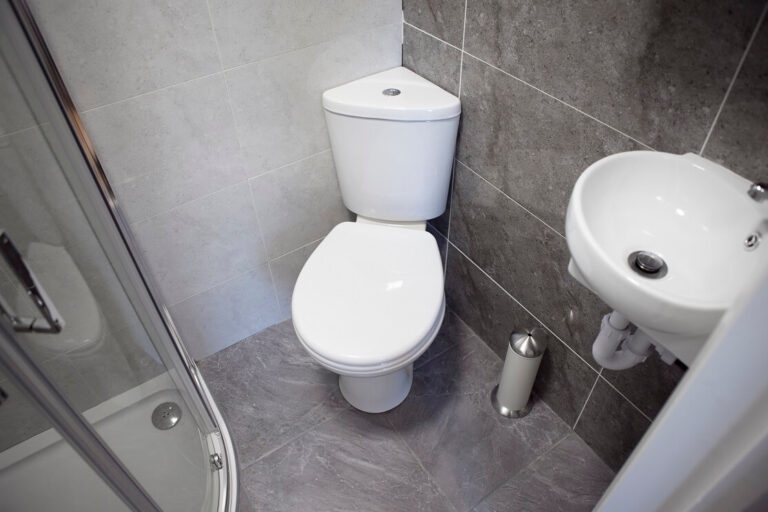Pros and Cons for the Rent2Rent Strategy
There has been media speculation recently about whether Rent2Rent is a feasible investment option.
We’ve collated information to bring you the pro’s and con’s of Rent2Rent so you can decide.
What is Rent2Rent?
Rent-2-Rent is when a property is let on a single let basis to one person (say the head-tenant) who has been given the right to sub-let some or all of the rooms, by the landlord.
Rent2rent companies or head tenant will probably live somewhere else and will have the responsibility to sub-let the rooms to separate tenants, usually four or less.
They will be responsible for paying the property’s single let rent and the bills. They will make profit by pocketing the difference.
The Rent2rent or head-tenant provides the landlord with a guaranteed rent, meaning that even if the property is vacant, they will be responsible to pay the agreed letting amount to the landlord.
Why would the Landlord agree to a Rent2Rent?
Being a landlord can be stressful at times dealing with tenant queries, day-to-day management responsibilities, day-to-day maintenance issues, finding tenants and looking after the property. Sometimes it can be a struggle to rent out a property if it’s not in an ideal location.
If landlords have multiple properties or a full-time job, then they may be open to the opportunity of a long-term guaranteed rent, while eliminating the property management stress.
The pro’s:
- As the rent2rent company or head tenant you can get started in the property marketing without a large capital expense in buying the property. If people believe that buying to rent is a risky strategy, then the Rent2Rent model poses a lower upfront financial cost.
- If the Rent2rent company or head-tenant rents to four or less separate people, then it is likely that an HMO licence is not needed. However, each Council has different rules, so this may not always be the case.
The con’s:
- As the Rent2rent company or head-tenant you will be responsible for the management of the property, the tenants and the maintenance. It is not a passive income strategy unless you employ a property manager.
- If you can’t rent out the rooms, then you still need to pay the landlord the agreed rental amount.
- You don’t own the asset. Landlords manage their own property because they know it is an asset that will increase in value in the future and can serve notice to get the property back sooner than you had envisaged.
- The recent changes in the HMO licensing rules have reduced the number of people who can separately rent a property, without getting an HMO licence. Now it is four or less people, compared to six or less previously. This means the profits available in a Rent2Rent property have reduced.
- There is the risk that the type of property repairs may become the full responsibility of the Rent2rent company or head-tenant if they are not specified properly. Normally the owner will pay for structural repairs like the roof, walls, boiler, failure in the damp-proof course, etc. However, this would need to be clearly stated in the agreement.
- There is the risk that the landlords’ mortgage conditions will be breached if Rent2Rent is undertaken. Subletting is more than likely against the mortgage terms. If the lender found out, then the landlord will be in breach of the mortgage terms and could lose the property or will terminate the Rent2Rent contract. In this case you could lose whatever money has been invested to get the property ready for Rent2Rent.
- There is a capital cost with undertaking a Rent2Rent. You will need to convert the property for multiple tenants. This could include locks on doors, security doors, ensuites in rooms, new furniture, whitegoods, the cost of HMO licence (if needed), fire blankets, extinguishers and installing smoke alarms, etc.
- There is the risk that the landlords’ building insurance may become invalid if the property becomes a multi-let property. Either a new premium will need to be paid, or a new insurance policy is needed.
- Finally, once the landlord takes responsibility back or your agreement ends, then the Rent2rent company or head-tenant will need to pay the costs to bring the property back to the single property condition.
Our Recommendations
We don’t use the Rent2Rent model, however, this doesn’t mean that it is not a suitable alternative for landlords.
If you are considering having your property used for a Rent2Rent strategy, or you are a head-tenant, then we offer the following recommendations:
- Do your due diligence checks to find out if the property is attractive as a multi-let property.
- Ensure that the property is :-
- safe for tenants to live in and has the necessary safety compliance in place
- is in good condition
- has an adequate number of smoke detectors
- has appropriate fire exits
- has enough sinks, cookers, baths and toilets for the number of tenants
- is well managed
- Check if the property needs to be HMO licensed. You can contact your local Council or speak to us about our HMO Licensing service.
- Whether the property will be classified as an HMO or not, ensure that it complies with the minimum room sizes.
- Choose the right tenants by first identifying the type of tenant you want. You will then need to advertise in the right locations to attract the right type of tenant. And finally, you will need to interview and screen the tenants.
- Be prepared to deal with tenant disputes. We recommend that you listen, be professional and act decisively.
- Ensure the refuse facilities are clean and functioning for the tenants.
- Undertake regular inspections to check the communal areas, refuse facilities and test fire alarms, smoke, and heat detectors.
- Do your due diligence on any Rent2rent company you chose, how long they have been up and running, portfolio they manage, info at companies house to check if registered, strong cash flow (remember they are guaranteeing your income).
Next Steps?
As specialists in property management, HMO conversions and licencing since 2006, we can provide you with advice on your property. Call us on +44 (0) 203 286 6468 or email us at HMO@RekaProperty.co.uk.
Regards
Douglas Fokuo
Director




